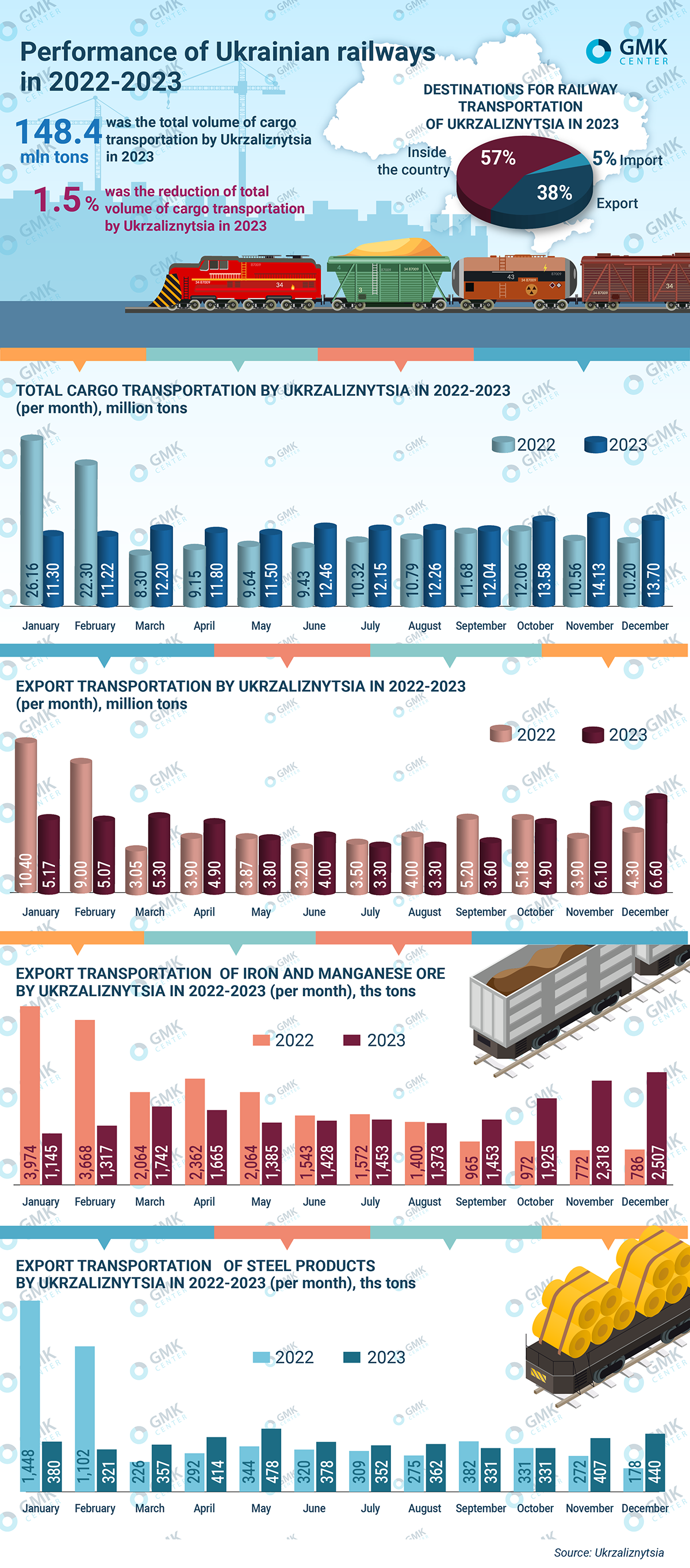More than 43% of last year’s rail exports were cargoes of iron and steel companies
In 2023, Ukrainian Railways (UZ) transported 148.4 million tons of cargo, down 1.5%, or 2.2 million tons, compared to 2022. The drop in cargo transportation in 2022 amounted to 52.1% y/y – to 150.6 million tons.
The dynamics of total transportation by certain types of cargo in 2023 was as follows:
- mineral building materials – growth by 29.6%, up to 29.6 million tons;
- grain cargo – growth by 5.9%, up to 30.6 million tons;
- iron ore – a decrease of 13.2%, to 27.5 million tons;
- hard coal – a decrease of 11.2%, to 26.2 million tons;
- ferrous metals – a decrease of 10.6%, to 8.2 million tons.
Despite the overall negative dynamics of last year, domestic transportation increased significantly by 11.4% compared to 2022 (to 84.8 million tons). This increase was due to the launch of the maritime corridor in August 2023, after the grain deal expired in July. Thus, in the five months of the corridor’s operation, the railroad transported 8.8 million tons of cargo to the Black Sea ports (+8.6% y/y). UZ also increased the volume of traffic to the Danube ports by almost 33%, in particular, through transit through Moldova and Romania. In total, in 2023, 22.3 million tons of cargo were transported through seaports, and 34.4 million tons through land crossings.
The volume of export transportation in 2023 decreased by 5.8%, or 3.44 million tons, to 56 million tons. This result was driven by a decrease in exports of iron ore (2.44 million tons), ferrous metals (0.94 million tons), mineral building materials (0.91 million tons), non-ferrous metal ores (0.37 million tons) and fertilizers (0.19 million tons).
The overall structure of rail exports is dominated by grain cargo (40.6%), followed by iron ore (35.2%) and ferrous metals (8.1%). In general, the volume of export transportation of iron ore in 2023 decreased by 11% – to 19.7 million tons, and ferrous metals – by 17.1%, to 4.54 million tons. The volume of grain exports increased by 0.8% – to 22.7 million tons

Source: https://gmk.center



